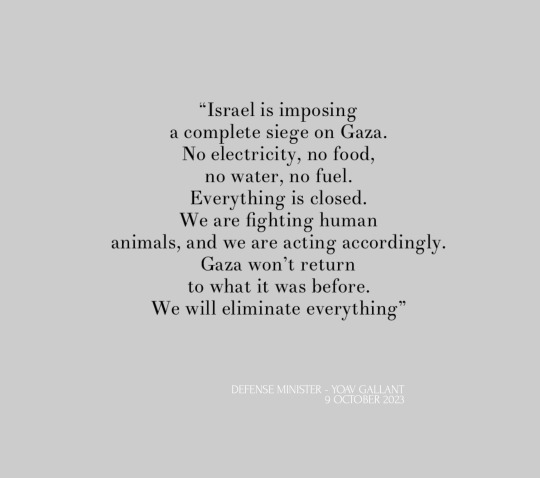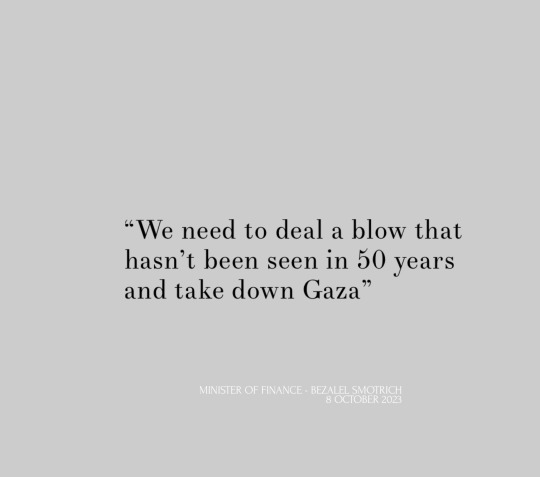Text
Loneliness: Unraveling the Silent Epidemic

Loneliness is more than just a fleeting feeling of isolation—it’s a complex and often misunderstood emotional state that affects millions of people around the globe. In today’s fast-paced, hyper-connected world, many paradoxically experience deep feelings of disconnection despite being “online” 24/7. This blog takes an in-depth look at loneliness: its causes, its consequences on our physical and mental health, and the promising strategies and solutions available to help us forge stronger, more meaningful connections.
Understanding Loneliness
What Is Loneliness?
Loneliness is a subjective feeling where the quality or quantity of one’s social relationships does not meet personal expectations. Unlike solitude, which can be a chosen state of peaceful reflection, loneliness is often accompanied by feelings of emptiness, sadness, and even despair. It can affect anyone—regardless of age, background, or social status—and may be triggered by life transitions, loss, or a significant change in one’s social environment.
The Many Faces of Loneliness
• Emotional Loneliness: This arises from the absence of a close, intimate relationship or a deep emotional bond.
• Social Loneliness: This occurs when an individual feels disconnected from a broader social network, lacking a sense of community or belonging.
• Situational Loneliness: Often triggered by significant life changes such as moving to a new city, starting a new job, or losing a loved one.
The Impact of Loneliness on Health and Society
Physical Health Consequences
Research indicates that chronic loneliness is not just an emotional burden—it also poses serious risks to physical health. Studies have linked prolonged loneliness to:
• Increased risk of cardiovascular disease: Some research suggests that loneliness can have effects similar to smoking or obesity when it comes to heart health.
• Weakened immune system: Chronic stress from loneliness may lead to inflammation and decreased immunity.
• Higher mortality rates: Studies have found that individuals experiencing persistent loneliness may have a mortality risk comparable to those with well-known risk factors such as obesity or high blood pressure.
Mental Health and Cognitive Impacts
Loneliness is a significant predictor of mental health disorders:
• Depression and Anxiety: Feelings of isolation can fuel depressive thoughts and anxiety, creating a cycle that is hard to break.
• Cognitive Decline: Older adults experiencing loneliness are at a higher risk for cognitive decline, including memory loss and even the early onset of dementia.
Societal Implications
At a societal level, loneliness can erode community bonds and lead to reduced social capital. In communities where loneliness is widespread, there can be a ripple effect—affecting productivity, increasing healthcare costs, and diminishing overall well-being.
Loneliness in the Digital Age
Paradox of Connectivity
Modern technology and social media have revolutionized the way we connect. However, digital communication often lacks the depth of face-to-face interactions. While platforms like Facebook, Instagram, and Twitter promise connection, many users report that these interactions are superficial and can exacerbate feelings of isolation.
The Role of Remote Work and Global Mobility
The COVID-19 pandemic has only deepened the loneliness epidemic. Remote work, while beneficial in many respects, has reduced daily in-person interactions, making it more challenging for individuals to feel truly connected with their colleagues and communities.
Scientific Studies on Loneliness
1. The Cacioppo Studies:
Dr. John Cacioppo, one of the pioneers in loneliness research, has demonstrated that chronic loneliness can trigger physiological changes similar to those seen in chronic stress. His work highlights how loneliness disrupts sleep patterns, heightens stress hormone levels, and impacts overall brain function.
2. Holt-Lunstad’s Meta-Analysis:
A comprehensive meta-analysis led by Dr. Julianne Holt-Lunstad concluded that loneliness and social isolation increase the risk of mortality by up to 26%. This study synthesized data from various global cohorts, emphasizing that loneliness is a significant public health concern.
3. The Impact of Social Media on Youth:
Several studies have indicated that heavy reliance on social media might be linked to increased feelings of loneliness among adolescents and young adults. The curated lives on digital platforms often lead to unrealistic social comparisons, further intensifying feelings of isolation.
How These Studies Shape Our Understanding
These studies underscore that loneliness is not merely a personal issue but a societal one. The biological, psychological, and social ramifications highlight the urgent need for both individual and collective action.
Strategies and Solutions: Combating Loneliness
Community and Connection
1. Building Social Networks:
• Join Groups or Clubs: Engaging in community activities or interest-based clubs can create avenues for regular social interaction.
• Volunteer Work: Helping others not only provides a sense of purpose but also fosters new connections.
2. Family and Friend Engagement:
• Regular Communication: Make time for face-to-face meetings, even if it’s just a regular phone call or video chat.
• Quality over Quantity: Focus on nurturing a few deep, meaningful relationships rather than many superficial ones.
Leveraging Technology for Good
1. Digital Meetups:
• Participate in online forums, webinars, and virtual gatherings that emphasize real connection rather than passive scrolling.
2. Mindful Social Media Use:
• Limit time spent on platforms that trigger negative self-comparisons and instead use technology to organize and maintain in-person gatherings.
Mental Health Interventions
1. Therapy and Counseling:
• Cognitive Behavioral Therapy (CBT): CBT can help reframe negative thoughts associated with loneliness and build healthier relationship patterns.
• Group Therapy: Sharing experiences with others who feel similarly isolated can be particularly healing.
2. Mindfulness and Meditation:
• Regular mindfulness practices can help reduce stress and foster a greater sense of self-compassion, which is critical in overcoming feelings of isolation.
3. Professional Support Networks:
• Don’t hesitate to reach out to mental health professionals if loneliness is affecting your daily life. Therapy is a sign of strength, not weakness.
Practical Advice for Overcoming Loneliness
Small Steps to Build Connection
• Start Local: Look for community centers, libraries, or local events where you can meet people in your area.
• Set Realistic Goals: Even a weekly coffee date or a monthly meetup can make a big difference.
• Practice Vulnerability: Opening up about your feelings can deepen relationships. Often, sharing your struggles invites empathy and connection.
• Learn New Skills: Taking a class—whether it’s cooking, dancing, or a new language—provides an opportunity to meet people with similar interests.
Building a Routine
• Structured Social Time: Incorporate scheduled social interactions into your weekly routine. This could be as simple as a walk with a neighbor or joining a local sports club.
• Digital Detox: Allocate specific times in your day to disconnect from digital devices and engage in in-person activities.
• Self-Care: Engage in activities that nurture your well-being—be it exercise, hobbies, or time spent in nature.
Creating a Supportive Environment
• Community Outreach: Consider organizing local events or online groups that foster safe, open conversation about loneliness.
• Peer Support Groups: Many communities have peer-led groups where individuals can share their experiences and coping strategies.
• Advocacy: Support public health campaigns aimed at reducing loneliness. Advocacy can help drive community-level changes that promote social connectivity.
Final Thoughts
Loneliness is a multifaceted issue that touches on the very core of what it means to be human. While the modern world presents unprecedented opportunities for connection, it also demands intentional efforts to foster genuine, meaningful relationships. By understanding the complex nature of loneliness, recognizing its impacts, and actively seeking solutions, we can begin to mitigate this silent epidemic.
Remember, overcoming loneliness isn’t about a dramatic overnight transformation—it’s about small, consistent actions that build a foundation for deeper, more fulfilling connections. Whether through community engagement, mindful technology use, or professional support, every step taken towards connection is a victory in the battle against loneliness.
If you found this blog insightful, please share your thoughts and experiences in the comments below. Let’s continue this important conversation together.
Image Credits: The images below are placeholders designed to illustrate key statistical trends related to loneliness. For further reading and verified data, consider exploring academic journals and public health resources.



#loneliness#writing#blog post#reading#tumblog#writers on tumblr#depression#anxitey#mental health#digital world
0 notes
Text
“It would be my greatest sadness to see Zionists do to Palestinian Arabs much of what Nazis did to Jews.”

- Albert Einstein [1879 - 1955]
3 notes
·
View notes
Text
History Speaks for Itself II - World Atlas 1926
#world atlas#history#facts#truth#free palestine#writing#politics#israel palestine conflict#writers on tumblr#palestine
1 note
·
View note
Text
“I'm for truth, no matter who tells it. I'm for justice, no matter who it is for or against. I'm a human being, first and foremost, and as such I'm for whoever and whatever benefits humanity as a whole.”

― Malcolm X - American human rights activist (1925-1965)
0 notes
Text
“To build up a library is to create a life. It’s never just a random collection of books.”
— Carlos María Domínguez
117 notes
·
View notes
Text
Political Correctness: Striking a Balance in Today’s World

In recent years, the concept of political correctness has become increasingly prevalent in public discourse, shaping the way we communicate and interact with one another. While the intention behind political correctness is to promote inclusivity and respect for all, its implementation has sparked debate and criticism, raising concerns about its impact on freedom of expression and social dynamics.
At its core, political correctness aims to foster a more inclusive and tolerant society by avoiding language or actions that may offend or marginalize certain groups. It seeks to promote sensitivity towards diverse perspectives and experiences, ultimately aiming to create a more equitable and respectful environment for all individuals.
However, the rigid enforcement of political correctness has led to unintended consequences, stifling open dialogue and inhibiting genuine expression. In many cases, individuals may feel hesitant to voice their opinions or engage in meaningful discussions for fear of inadvertently causing offense or being labeled as insensitive.
Furthermore, the hyper-focus on political correctness has resulted in a culture of “canceling” individuals or ideas deemed to be politically incorrect. This phenomenon can have damaging effects on individuals’ reputations and livelihoods, creating a chilling effect on free speech and creativity. Instead of fostering understanding and dialogue, the fear of being “canceled” can lead to self-censorship and the suppression of dissenting viewpoints.
Moreover, the overzealous pursuit of political correctness can sometimes result in trivializing important issues or diluting genuine efforts towards social justice. By prioritizing linguistic correctness over substantive action, there is a risk of superficiality and tokenism, undermining the effectiveness of genuine efforts to address systemic inequalities and discrimination.
It’s important to recognize that while political correctness has its merits, it should not come at the expense of genuine dialogue, critical thinking, and freedom of expression. Finding a balance between sensitivity and openness is essential in creating a society where diverse perspectives are valued and respected.
In conclusion, the impact of political correctness on our lives is complex and multifaceted. While its intention to promote inclusivity and respect is commendable, the rigid enforcement of political correctness can have unintended consequences, stifling free expression and hindering genuine dialogue. Moving forward, it’s crucial to foster a culture where individuals feel empowered to engage in open and respectful discourse, while also being mindful of the diverse experiences and perspectives of others.
#politics#writing#thoughts#political correctness#freedom of speech#writing community#writers on tumblr#thinking
0 notes
Text
Embrace Your Journey: Finding Motivation in Every Step

Hey, readers!
Today, I want to talk about something that’s close to all of our hearts: motivation. We all have dreams, goals, and aspirations, but sometimes it can feel like we’re stuck in a rut, lacking the drive to push forward. But fear not, because I’m here to remind you that motivation is within reach, waiting for you to grab onto it with both hands and soar!
✧:・゚✧:・゚✧:・゚✧:・゚✧:・゚✧:・゚✧:・゚✧:・゚✧:・゚✧
First things first, let’s address the elephant in the room: it’s okay to feel unmotivated sometimes. We’re human, after all, and life can throw curveballs that knock us off our feet. But remember, it’s not about how many times you fall down; it’s about how many times you get back up. So, take a deep breath, dust yourself off, and let’s get back on track together.
One of the most powerful tools in your motivational toolkit is mindset. Your attitude and perspective can make all the difference in how you approach challenges and setbacks. Instead of viewing obstacles as roadblocks, see them as opportunities for growth and learning. Every setback is a chance to come back stronger and wiser than before.
Next up, let’s talk about goals. Setting clear, achievable goals is essential for staying motivated. Break down your big dreams into smaller, manageable steps, and celebrate each milestone along the way. Remember, progress, no matter how small, is still progress. So, keep moving forward, one step at a time.
Now, let’s talk about passion. Finding what sets your soul on fire is key to staying motivated when the going gets tough. Whether it’s writing, painting, dancing, or something else entirely, make time for the things that bring you joy and fulfillment. Your passion will fuel your drive and keep you motivated even when the going gets tough.
And finally, don’t forget to surround yourself with positivity and support. Surround yourself with people who believe in you and your dreams, and don’t be afraid to lean on them when you need a little extra encouragement. Remember, you’re not in this alone.
So, my dear friends, as you embark on your journey toward your dreams, remember that motivation is a journey, not a destination. Embrace the ups and downs, the twists and turns, and know that with the right mindset, goals, passion, and support, you can achieve anything you set your mind to. Believe in yourself, stay true to your path, and never stop chasing your dreams.
With love and light..
0 notes
Text
Men make their own history, but not of their own free will; not under circumstances they themselves have chosen but under the given and inherited circumstances with which they are directly confronted.
1 note
·
View note
Text
Understanding the Perils of Communism: Lessons from History

Communism, with its promise of equality and social justice, has captivated the minds of many throughout history. Yet, behind this utopian facade lies a system fraught with dangers and pitfalls, as evidenced by the tumultuous events of the 20th century. From the rise of totalitarian regimes to the suppression of individual freedoms, the dangers of communism loom large in the annals of history.
One of the most glaring dangers of communism is its tendency towards authoritarianism. In the pursuit of a classless society, communist regimes often concentrate power in the hands of a select few, leading to the emergence of totalitarian dictatorships. Under such regimes, dissent is stifled, opposition is crushed, and basic human rights are trampled upon in the name of the greater good.
Moreover, communism’s centralized economic planning has proven to be inefficient and unsustainable. By abolishing private property and imposing state control over the means of production, communist governments have stifled innovation, stifled entrepreneurship, and led to widespread poverty and deprivation. The lack of economic incentives and the absence of market mechanisms have resulted in chronic shortages, bureaucratic inefficiency, and economic stagnation.
Furthermore, communism’s disregard for individual liberties poses a grave threat to human dignity and freedom. In the pursuit of collective goals, communist regimes have routinely violated basic rights such as freedom of speech, freedom of assembly, and freedom of religion. Dissidents, intellectuals, and religious minorities have been persecuted, imprisoned, and even executed for daring to challenge the orthodoxy of the ruling party.
The tragic legacy of communism serves as a stark reminder of the dangers of sacrificing individual freedoms for the sake of ideological purity. From the horrors of Stalin’s purges to the brutality of Mao’s Cultural Revolution, the human cost of communism is incalculable. The scars left by these regimes continue to haunt societies long after their collapse, reminding us of the importance of safeguarding democracy, human rights, and the rule of law.
In conclusion, while communism may hold allure for some as a pathway to a more just and equitable society, the dangers it poses are too great to ignore. From its propensity towards authoritarianism and economic mismanagement to its disregard for individual liberties, communism has left a trail of devastation in its wake. As we reflect on the lessons of history, let us remain vigilant in defending the values of freedom, democracy, and human rights against the pernicious ideologies of the past.
#communism#freedom of speech#dictatorship#human rights#writing#politics#thoughts#history#modern day slavery#world politics
0 notes
Text
Enhance Your Productivity: Practical Tips for Reading Faster and Retaining More Information

Reading efficiently is a valuable skill that can significantly enhance your productivity and knowledge retention. Whether you're a student, a professional, or an avid reader, improving your reading speed and comprehension can positively impact various aspects of your life. In this blog, we'll explore practical tips and techniques to help you read faster and absorb information more effectively.
1. Set Clear Reading Goals:
Setting specific reading goals can help you stay focused and motivated. Determine the amount of time you want to dedicate to reading each day and set achievable targets for the number of pages or chapters you aim to cover. This simple practice can create a structured approach to your reading habits and drive consistent progress.
2. Eliminate Distractions:
Create a conducive environment for reading by minimizing distractions. Find a quiet space, turn off electronic devices, or use apps that block notifications during your reading sessions. Distraction-free reading allows you to immerse yourself fully in the material, leading to improved focus and comprehension.
3. Practice Active Reading:
Engage with the text actively by asking questions, summarizing key points, and making connections to your own experiences. Actively processing the material enhances comprehension and retention. It's essential to interact with the content rather than passively scanning through it, as active reading stimulates critical thinking and deeper understanding.
4. Expand Your Vocabulary:
A broader vocabulary enhances reading speed and comprehension. Make an effort to learn new words and their meanings to improve your ability to recognize and understand them while reading. Constantly expanding your vocabulary can lead to faster and more fluent reading.
5. Use a Pointer or Guide:
When reading physical books or printed material, use your finger, a pen, or a ruler to guide your eyes along the lines. This assists in maintaining focus and reduces the tendency for unnecessary re-reading or losing your place in the text.
6. Minimize Subvocalization:
Subvocalization, the habit of silently pronouncing each word while reading, can slow down your reading speed. Practice reducing this tendency to train yourself to process information at a faster pace. Minimizing subvocalization can help you move through the text more efficiently.
7. Improve Eye Movement:
Train your eyes to move smoothly across the page instead of fixating on each word individually. Techniques such as peripheral vision expansion and chunking can help you take in more content at once and enhance your reading speed while maintaining comprehension.
8. Avoid Regression:
Resist the urge to constantly re-read sentences or skip back to previous paragraphs. Stay focused on moving forward through the text, as consistent regression can impede your reading speed and disrupt the flow of information absorption.
9. Select Appropriate Reading Material:
Choose books and articles that align with your interests and reading level. Starting with material you find engaging and accessible can facilitate faster reading and enhanced enjoyment. When you're genuinely interested in the content, you're more likely to read at a quicker pace and retain the information effectively.
10. Practice Speed Reading Techniques:
Experiment with techniques such as skimming, scanning, and meta-guiding to train yourself in processing information at an accelerated pace. These techniques can help you quickly identify key points and main ideas within a text, contributing to an overall improvement in reading speed and efficiency.
Note: Enhancing your reading speed and comprehension is a skill that can be developed with dedication and practice. By implementing the tips and techniques outlined in this blog, you can improve your ability to process information efficiently, ultimately leading to increased productivity and knowledge acquisition.
Remember, while speed reading is beneficial, it's crucial to maintain a balance between speed and comprehension to fully grasp and retain the material. With consistent practice and a focused approach, you can transform your reading habits and amplify your productivity in various areas of your life.
#reading#books and reading#books lover#productivitytips#writers on tumblr#study tips#reading tips#tumblog#practice#reading challenge#blog post
10 notes
·
View notes
Text
“I come to this magnificent house of worship tonight because my conscience leaves me no other choice.
A true revolution of values will lay hands on the world order and say of war: “This way of settling differences is not just.” This business of burning human beings with napalm, of filling our nation’s homes with orphans and widows, of injecting poisonous drugs of hate into veins of people normally humane, of sending men home from dark and bloody battlefields physically handicapped and psychologically deranged, cannot be reconciled with wisdom, justice and love.”

– Martin Luther King, Jr.'s "Beyond Vietnam" speech, his first anti-war speech 04 April 1967
#mlk jr#martin luther king day#quote#writing#history#politics#war#peace#injustice#end war#speech#mlk day
1 note
·
View note
Text
Statements about “Genocidal intent” made by Israeli officials









#israel palestine conflict#israel#palestine#quotes#writing#politics#history#genocide#international court of justice
6 notes
·
View notes
Text
The Final Speech from The Great Dictator - 1940

I’m sorry, but I don’t want to be an emperor. That’s not my business. I don’t want to rule or conquer anyone. I should like to help everyone - if possible - Jew, Gentile - black man - white. We all want to help one another. Human beings are like that. We want to live by each other’s happiness - not by each other’s misery. We don’t want to hate and despise one another. In this world there is room for everyone. And the good earth is rich and can provide for everyone. The way of life can be free and beautiful, but we have lost the way.
Greed has poisoned men’s souls, has barricaded the world with hate, has goose-stepped us into misery and bloodshed. We have developed speed, but we have shut ourselves in. Machinery that gives abundance has left us in want. Our knowledge has made us cynical. Our cleverness, hard and unkind. We think too much and feel too little. More than machinery we need humanity. More than cleverness we need kindness and gentleness. Without these qualities, life will be violent and all will be lost…
The aeroplane and the radio have brought us closer together. The very nature of these inventions cries out for the goodness in men - cries out for universal brotherhood - for the unity of us all. Even now my voice is reaching millions throughout the world - millions of despairing men, women, and little children - victims of a system that makes men torture and imprison innocent people.
To those who can hear me, I say - do not despair. The misery that is now upon us is but the passing of greed - the bitterness of men who fear the way of human progress. The hate of men will pass, and dictators die, and the power they took from the people will return to the people. And so long as men die, liberty will never perish…
Soldiers! don’t give yourselves to brutes - men who despise you - enslave you - who regiment your lives - tell you what to do - what to think and what to feel! Who drill you - diet you - treat you like cattle, use you as cannon fodder. Don’t give yourselves to these unnatural men - machine men with machine minds and machine hearts! You are not machines! You are not cattle! You are men! You have the love of humanity in your hearts! You don’t hate! Only the unloved hate - the unloved and the unnatural! Soldiers! Don’t fight for slavery! Fight for liberty!
In the 17th Chapter of St Luke it is written: “the Kingdom of God is within man” - not one man nor a group of men, but in all men! In you! You, the people have the power - the power to create machines. The power to create happiness! You, the people, have the power to make this life free and beautiful, to make this life a wonderful adventure.
Then - in the name of democracy - let us use that power - let us all unite. Let us fight for a new world - a decent world that will give men a chance to work - that will give youth a future and old age a security. By the promise of these things, brutes have risen to power. But they lie! They do not fulfil that promise. They never will!
Dictators free themselves but they enslave the people! Now let us fight to fulfil that promise! Let us fight to free the world - to do away with national barriers - to do away with greed, with hate and intolerance. Let us fight for a world of reason, a world where science and progress will lead to all men’s happiness. Soldiers! in the name of democracy, let us all unite!
- Charlie Chaplin
Chaplin spent many months drafting and re-writing the speech for the end of the film.
Chaplin’s words are as relevant today as they were in 1940.
“One doesn’t have to be a Jew to be anti Nazi. All one has to be is a normal decent human being.”
#the great dictator#charlie chaplin#dictatorship#history#truth#politics#writing#reality#quote#films#1940s movies#freedom
0 notes
Text
Same story, different time.
Ethnic cleansing and dispossession.

#truth#history#injustice#ethnic cleansing#free palestine#israel palestine conflict#politics#writing#native americans
23 notes
·
View notes
Text
“If one has to refer to any of the parties as a terrorist state, one might refer to the Israeli government, because they are the people who are slaughtering defenseless and innocent Arabs in the occupied [Palestinian] territories, and we don’t regard that as acceptable.”

– Nelson Mandela, The President of South Africa (1994-1999)
#nelson mandela#quote#free palestine#israel palestine conflict#truth#politics#history#palestine#thoughts#reality#injustice#writing
11 notes
·
View notes
Text
"I’m not anti-Semitic at all, but I am anti-Zionist. I don’t believe they have the right, after 3,000 years, to reclaim the land with western bombs and guns on biblical injunction.”

Remembering James Baldwin, who passed away on this day in 1987.
415 notes
·
View notes
Text
“You can't ever reach a man if you don't speak his language. If a man speaks the language of brute force, you can't come to him with peace.”
– Malcolm X
#free palestine#israel palestine conflict#quote#malcolm x#truth#writing#politics#palestine#reality#injustice
45 notes
·
View notes